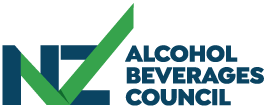22 March 2022
MEDIA RELEASE
Local skills, social change and sustainability have been the key drivers for the New Zealand alcohol industry’s significant contribution to the local economy, an Alcohol Beverages Industry report by the NZ Institute of Economic Research[i] shows.
Released today, the report says the sector contributes $1.92 billion to GDP, pays $1.819 billion in excise tax and GST, spends $2.02 billion on local goods and services and generates $2.09 billion in exports. This is against a backdrop where government statistics show alcohol consumption has fallen around 25% since the ’70s and ’80s, says the NZ Alcohol Beverages Council (NZABC).[ii]
“The report shows that the 1,865 beer, wine, and spirits businesses employ around 10,200 people from boutique distilleries in rural areas, specialty production in the regions to head offices in city centres. In addition, another 20,900 are employed indirectly from businesses in the supply chain, from yeast producers and hops growers to packaging, logistics and shipping. As a supplier itself, the industry connects to the hospitality industry, which employs around 172,000 in cafes, bars, restaurants, hotels and events businesses,” says Bridget MacDonald, NZABC’s Executive Director.
“Working in a restaurant or harvesting grapes are often first jobs where young Kiwis develop skills that are transferable to other industries or where they discover their passion that leads to a lifelong career,” says Bridget.
The report also details how the industry and society have changed over the last couple of decades.
“Times are changing, people are drinking less, and the industry is changing with those times. People are drinking less and becoming more moderate consumers. It’s more about socialising with family and friends over food and a drink––and if people choose not to drink, that’s okay too. We are seeing a shift toward more mindful drinking where consumers sip and savour higher quality beverages or choose no- and low-alcohol options.
“There’s also a definite shift, as in most western countries around the world, to supporting local producers. We’re appreciating locally-sourced talent and goods, which is sustaining the growth of our boutique wineries, distilleries and breweries,” says Bridget. [iii]
“It’s an exciting time for our industry––we are diversifying our product ranges in response to consumer demands and trends. The challenges of today are becoming the opportunities for tomorrow, and this encourages innovation and investment in research and development right throughout the industry––from developing unique hops varieties for beer, embracing indigenous ingredients for spirits to refining viticulture practices to create lower alcohol wines,” Bridget says.
“The conscious consumer is not just looking for lower carb but also lower carbon. Industry’s commitment toward carbon-zero and sustainability targets is driving innovation across all aspects of business from sustainable supply chains, recyclable packaging, refining manufacturing processes, zero waste initiatives, reusing byproducts, reducing water and supporting local goods and services,” says Bridget.
“At the heart of it is people––from those who grow grapes, grains and hops to our customers who enjoy a drink and convivial times with family and friends. The pandemic has been challenging for most businesses, including our industry. However, it is resilient and dynamic and will continue to play its part in making a positive contribution to New Zealand’s financial, environmental and social economies as we work through the uncertainty that lies ahead,” says Bridget.
The numbers for beer, wine and spirits in NZ
Economic
- 10,210 employees and 20,913 indirect jobs[iv]
- $1.92 billion contribution to GDP
- $1.819 billion in tax to government (excise and GST)
- $2.09 billion in exports
- $2.02 billion spent on local goods and services.
Environmental
- 75% recovery rate for glass through Glass Packing Forum’s Product Stewardship Scheme
- Environmental commitments, e.g. Climate Leaders Coalition and carbon zero initiatives
- Sustainability targets from supply chains, sustainable packaging, zero waste to landfill, land regeneration, reducing water use, sourcing local, biosecurity, renewable electricity.
Social
- 78% of NZers say they are comfortable with alcohol being part of social occasions[v]
- 47% consumed low-alcohol drinks in 2021 (+7% from 2020)[vi]
- 82% drink at or below the weekly limit of Ministry of Health ‘Low-risk alcohol drinking advice’, and 92% have at least two alcohol-free days as suggested[vii]
- 84% of NZers support education in schools[viii]
- Industry pays an annual levy of about $11.5m to the Health Promotion Agency to fund awareness campaigns
- Industry supports a number of activities to reduce alcohol-related harm, including supporting The Tomorrow Project to fund Smashed, a curriculum-linked theatre in schools education programme delivered by Life Education Trust, Cheers NZ! (cheers.org.nz), and Alcohol&Me (alcoholandme.org.nz).
Additional information regarding the report
For footnote references please refer to the full media release: Media Release_Skills, social change and sustainability driving innovation in alcohol industry_220322
Please refer to the letter from the NZABC Chair and infographic: Letter from NZABC Chair and Infographic_220322
Please refer to the NZIER Alcohol Beverages Industry report: NZIER_Alcohol Beverages Industry Economic Impact Report_220322_compressed file
ENDS
Need more information?
Check out cheers.org.nz and alcoholandme.org.nz for more information on what a standard drink is and how to make better drinking decisions.
A good rule of thumb is ‘Go no, low or slow’. It’s okay to choose no or low alcohol drinks. If you choose to drink, pace yourself and enjoy your drink slowly.
Ministry of Health/HPA Guidelines: Low-risk alcohol drinking advice to reduce your long-term health risks by drinking no more than:
– Two standard drinks a day for women and no more than 10 standard drinks a week,
– Three standard drinks a day for men and no more than 15 standard drinks a week,
– AND have at least two alcohol-free days every week.
Need help?
Call the Alcohol Drug Helpline on 0800 787 797, free txt 8681, or visit alcoholdrughelp.org.nz.
